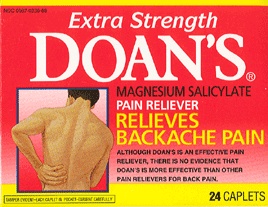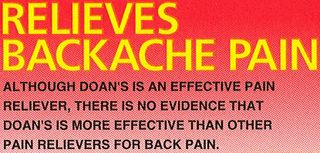Maybe everything just vibrates ...
If you're up for an interesting read, check out Brian Greene's The Fabric of the Cosmos, a delightfully mentally stretching romp through the worlds of relativity, quantum physics, and cosmology.
I've got the book on CD (compliements of Audible) and it's an interesting way to while away the commute across the state (my current employment is about an hour's drive away from home). I'm almost beginning to comprehend the concept of 9- or 10-dimensional space ... when my brain takes a slight detour around the "particles are waves ... waves are particles ... everything is strings ... and strings are waves" part.
I remember watching a program about research being done in the area of our sense of smell. The theory being put forth is that the nose doesn't differentiate smells by the configuration of the molecules that make up the smell, rather it uses the vibrational differences between molecules. In other words, without knowing what chemicals combined together to produce a particular odor, if they combined compounds based on their vibrational frequencies ... a smell could be duplicated. Now, all that needs to be done is the mapping of the 'smell notes' (different frequencies that, when combined, generate specific smells) and (much like having mapped the genome) we can replicate smells.
Wait ... wait ... ahh, here we go ... the scientist is Dr. Luca Turin at University College of London. There's a book on the entire thing (something else to add to my reading list): The Emperor of Scent: A Story of Perfume, Obsession, and the Last Mystery of the Senses
But look at things a different way: what they're saying is that certain molecules vibrate in certain ways and it's the vibrations that control the smell. I think this is just the tip of a much bigger iceberg: one where all our interactions with reality are in fact nothing more than frequency combinations. Look at our 5 senses:
- Variations in the vibrations of photons generate the color spectrum that we see
- Variations in the vibrations of molecules generate different smells
- Variations in the vibrations of molecules of air generate different sounds
That's 3 out of 5 that can be mapped to vibrations as opposed to particles:
- Touch appears to be "particle-based", but that makes sense: touch is a rather "coarse" sense, requiring relatively large quantities of matter before it can be physically detected.
- Taste also still appears to be particle-based ... but if smell is vibrational, it's conceivable that taste could be seen the same way (we know that single molecules, for example a single capsaicin molecule, can be detected ... so it appears we're on the same molecular scale as smell
Sure, we talk, think, and visualize the world as a collection of particles ... electrons, protons, etc. ... but those particles are themselves made up of smaller entities (quarks) which are (if you adhere to superstring theory) made up of vibrating strings). Is it possible to take the frequencies of all the vibrating strings that make up a particular thing and figure out the overall harmonic pattern of the thing? Better yet, identify what frequencies combine to produce particular sensory responses (blue, sweet, rotten, etc.)
I'm babbling, I know ... but it's an interesting concept ... at least, it's interesting when I'm trying to keep from doing real work.







